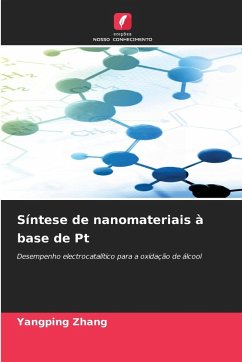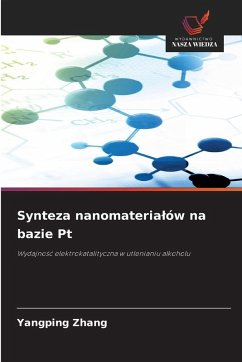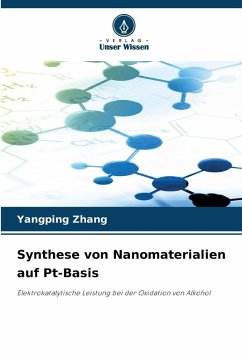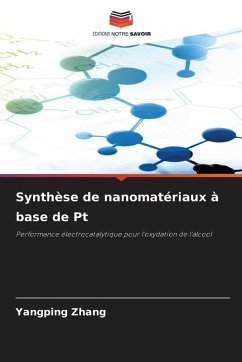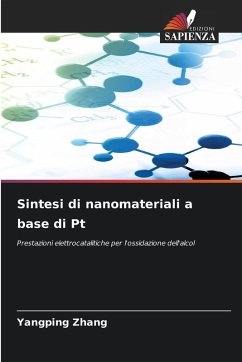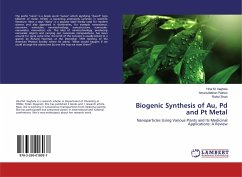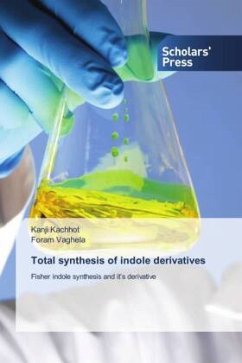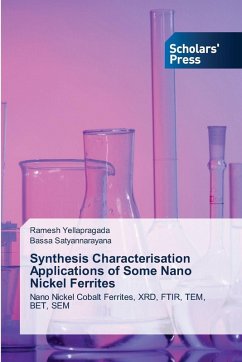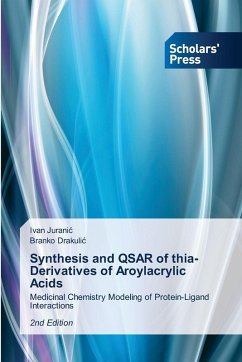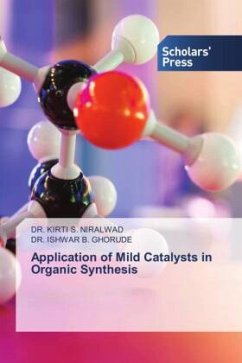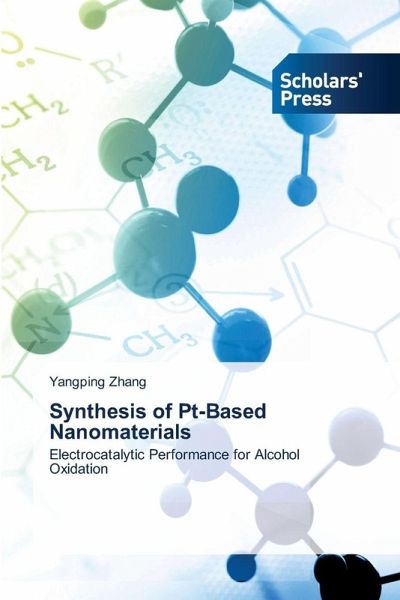
Synthesis of Pt-Based Nanomaterials
Electrocatalytic Performance for Alcohol Oxidation
Versandkostenfrei!
Versandfertig in 6-10 Tagen
58,99 €
inkl. MwSt.

PAYBACK Punkte
29 °P sammeln!
As one of the important components of fuel cells, precious metal Pt is a highly efficient electrocatalyst, which has a great effect on anodic reactions in fuel cells. However, due to the low natural reserves and exorbitant price of noble metal Pt, those bottlenecks still limit the practical development of fuel cells. Therefore, by doping some cost-effective metals (such as Fe, Ni, etc.) to form Pt-based catalysts, not only can improve the utilization of precious metals, but also boost the catalytic performance by the virtue of alloy and synergistic effects. Factors such as superficial composit...
As one of the important components of fuel cells, precious metal Pt is a highly efficient electrocatalyst, which has a great effect on anodic reactions in fuel cells. However, due to the low natural reserves and exorbitant price of noble metal Pt, those bottlenecks still limit the practical development of fuel cells. Therefore, by doping some cost-effective metals (such as Fe, Ni, etc.) to form Pt-based catalysts, not only can improve the utilization of precious metals, but also boost the catalytic performance by the virtue of alloy and synergistic effects. Factors such as superficial composition and structure of the obtained catalysts are greatly pivotal to the catalytic performance. Among them, Pt-based one-dimensional materials with relative stable construction and good electron conductivity, which could significantly enhance catalytic behaviors. In view of this, effectively engineer and tailor the superficial stucture of Pt-based including networked or core-shell construction, would improve the catalytic properties owing to larger superfical active areas and more reactive sites.



